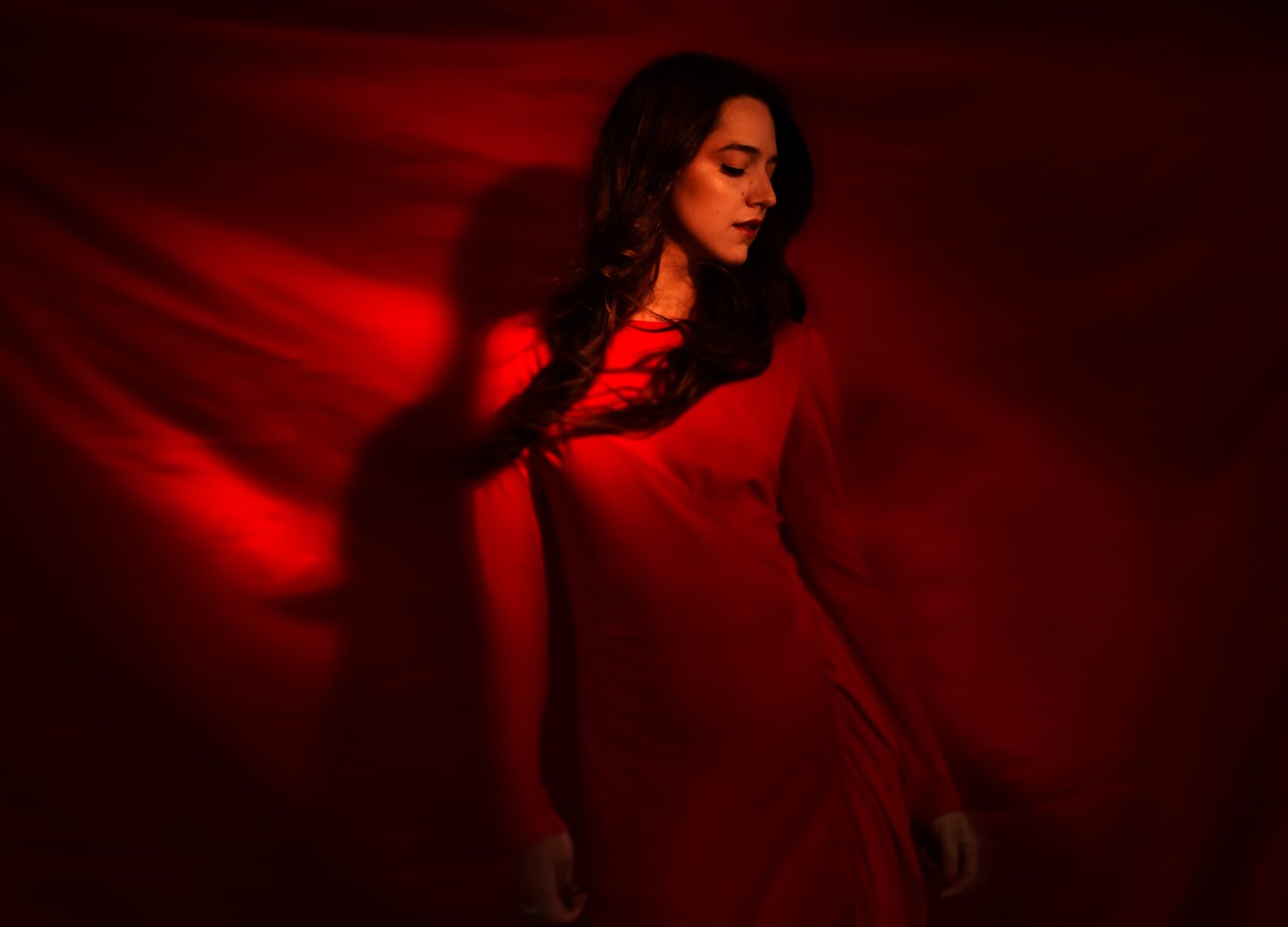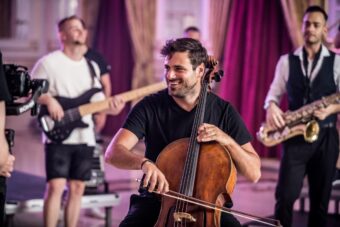I was standing on a stage at the concentration camp Auschwitz-Birkenau, one of the most awful places on Earth, about to sing in front of 15,000 people. In that moment, I knew that what I was about to do was not about me at all. I closed my eyes and reminded myself that I was a vessel: My job was to use my voice to bring comfort and healing. My strength would come from a greater place and from the souls in that sorrowful place.
Building community through music has been my job for the past 10 years. As a touring musician, mostly in the religious space, singing Hebrew prayers, leading services, and officiating weddings and life-cycle events became my job by accident. I started playing at weekend retreats during college and kept getting asked to do more. Before I knew it, I was gigging full time, traveling and doing what I love. I’ve connected with incredible people all over the world, playing in Ukraine, Argentina, Russia, all over Europe and Israel, even in the United Nations. Building a global music community has been extremely fulfilling, and I’ve always felt there was something else on the horizon for me. I was ready to write my first solo album outside of the religious space.
For six years I traveled with my partner at the time, Eric Hunker, in our duo band Eric & Happie. We sang both indie-folk love songs and also played many religious gigs together, largely for BBYO Inc., the world’s leading and largest global Jewish teen youth movement. After that relationship ended, it was time for me to step into my own artistry. The past three years have been full of extreme growth for me, and, this past January, I wrote Heartbreak Season, my new indie-pop EP.
“The thing you don’t want to say — that’s what you have to write,” drilled my friend Ori Rakib, iRO music, while sitting in a New York apartment in the middle of winter. Putting me through a songwriter bootcamp of sorts, Ori asked me some of the hardest questions I’d been asked about my relationships and love life. I was going through a heartbreak at the time, and writing these songs helped me get through it. He pushed me to be more honest than I had ever been in my songwriting.
Authenticity, in my opinion, is the most important piece of singing and writing spiritual music — it must come from deep within. For me, it always has. Since I was a child, my dad has always told me to sing from my heart, and that’s still what I tell myself every time before I sing. The feeling that I have singing spiritual music, it’s the same feeling that I have singing the songs off my new EP.
It’s my job to feel and to express, to genuinely share my emotions no matter the context. Singing in the religious space and the secular space actually doesn’t feel that different. The words, outfits, and contexts might be different, but the emotion involved is the same to me. However, there are sometimes interesting and pretty wonderfully juxtaposed moments.
During the pandemic, I accepted a job as a cantorial soloist, or music spiritual leader, for Temple Israel, my childhood synagogue in Memphis, Tennessee. I had a realization while walking through the airport one day. A summer Thursday night I had played at a nightclub in New York called Gospel (ironically) with my band, and I was headed to lead a congregation in prayer as clergy for Friday night Shabbat services the next day. I realized in that moment that it is all the same. Though I was expressing different pieces of my heart for these two different gigs, it was nonetheless my job at both to share my heart. This past fall I led the music for Yom Kippur Services, and the very next day I flew to Austin to play the main stage at Austin City Limits Music Festival. Two different platforms, but two very similar expressions of my heart.
Although I am focused on my new original music and writing, my musical journey has grown out of my work within the Jewish community. I would not be the artist I am today without the 10 years of emoting musically in the Jewish space. The Jewish community taught me to be authentic, to hone my gift, and to be a vessel for emotional connection. I have been shaped by the many March of the Living trips that I’ve taken to Poland and Eastern Europe, standing in gas chambers and seeing what humanity is capable of. As I stood on that stage at Auschwitz, I felt the heaviness of the moment as well as the hope for a better future. In that moment I was using my voice as a call to action to all that could hear: “Never again.” And yet, as I type, antisemitic crime is on the rise and making headlines. The music industry, the industry that I now call home, is riddled with antisemitic comments. Antisemitic hate crimes are being reported at record levels, and according to the FBI’s annual data on hate crimes, Jews are the most targeted religious community in the U.S., despite only representing less than 2% of the population.
I feel that while I might not be on a physical platform like I was at Auschwitz, I have the responsibility to say that this is not OK. It’s not normal. I am grateful for the support of my non-Jewish friends and leaders who have spoken out and have stood up for a loving humanity. It’s on each of us to continue to call it out and continue to build a community where hate is not only not accepted, but is rooted out. When there is hate, it is each one of our jobs to tip the scales towards justice and love. I will continue to sing from my heart, and my wish for us all is that we can continue to do our part by both speaking up when we see injustice and sharing each of our unique lights.
HAPPIE’s upcoming EP ‘Heartbreak Season’ (November 18) is a stunning debut that mixes warmly organic instrumentation with sleek electro-ambience, storyteller narratives, sultry grooves, and seductive sentimentality. For more information, check out her Spotify or visit happiehoffman.com




